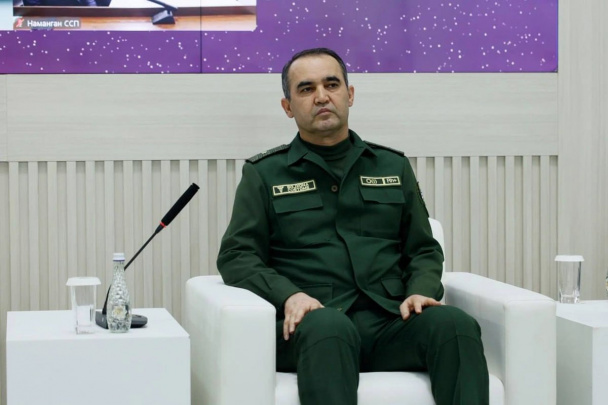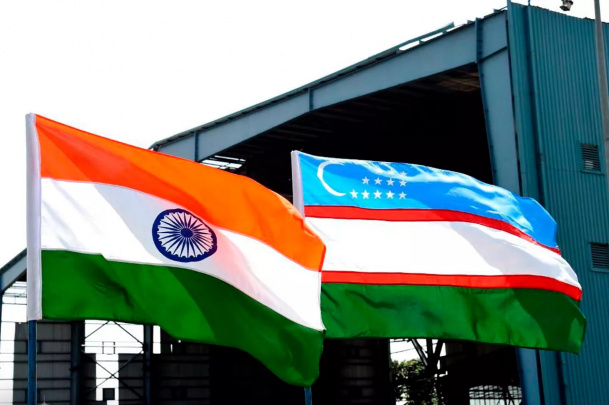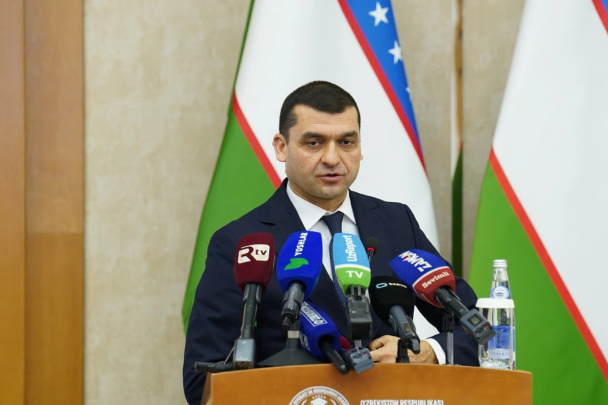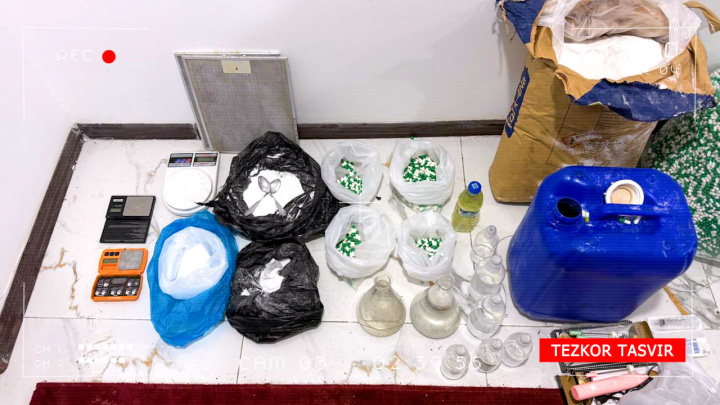Indian embassy ensures response to 'Doc-1 Max' incident with delegation visit
Many children in Uzbekistan died due to the "Doc-1 Max" medication, which has led to the initiation of a criminal case and subsequent investigations against the manufacturer in India. However, there is no information available about the ongoing investigations or legal proceedings in India. Kun.uz spoke with a representative of the Indian Embassy in Uzbekistan to seek information on the matter.

Фото: Kun.uz
According to Uzbekistan's investigative and court materials, at least 68 children have died and 16 have become disabled due to the consumption of the "Doc -1 Max" cough syrup, produced by India's "Marion Biotech." Inspections revealed the presence of diethylene glycol (DEG) and ethylene glycol (EG), toxic substances, in place of or alongside propylene glycol in the "Doc -1 Max" and "Ambronol" syrups.
Following these findings, Indian police arrested the director and two chemists of the pharmaceutical company. It was announced that two other directors, "currently abroad, will be detained upon their return to India."
Charges have been made against the leaders of "Marion Biotech Private Limited" (the manufacturer) and "Maya Chemtech India Pvt." (the supplier who provided components to the manufacturer) and others pursuant to India's Drugs and Cosmetics Act, Sections 17(a) and 17(b), for producing and selling drugs likely to cause grievous harm and endanger human life, found to be substandard, spurious, and fake.
In March 2023, Uzbekistan's investigative authorities sent a relevant inquiry to the Indian government through the Ministry of Foreign Affairs, seeking clarity on the information that had been circulating in the media. However, as of March 2024, there has been no response to the aforementioned inquiry.
To obtain detailed information about the criminal case, Kun.uz visited the Indian Embassy in Uzbekistan and had a conversation with Shri Arif Saeed, Counsellor.
Shri Arif Saeed’s initial explanation: Some information featured in your published article was new to us also. We are in constant communication with the Government of Uzbekistan to become acquainted with the investigation results. We have taken this matter seriously from the beginning because we do not want people worldwide to have the impression that India supplies drugs that are below international standards.
The embassy thought that "Marion Biotech" faced serious repercussions for what they did. Once court process information started being published in Uzbek media, it became apparent this was not the case. After that, we demanded that a large delegation from India come to Uzbekistan and it is scheduled to arrive in the last week of July. The delegation will include representatives from the Ministry of Health, the Ministry of Pharmaceuticals, and other relevant institutions. They will answer all the questions and give explanations.
Reporter: There is no information available about the ongoing court proceedings in India despite the time that has passed, what is the reason for this silence?
Shri Arif Saeed: The embassy is working jointly with the Pharmaceuticals and Health Ministries to know the punishments given in the trial. This information will soon be disclosed.
Reporter: Is it fair for the accused who caused many children's deaths in Uzbekistan to be charged with such light punishments?
Shri Arif Saeed: The perception that penalties are being described as lenient is based on general information. We have no evidence that it applies to that specific case. Indian legislation also has other clauses for instances causing the death of individuals. The delegation arriving at the end of July will address every aspect and provide full information.
Reporter: When will the embassy provide complete information on this matter to the public?
Shri Arif Saeed: I cannot give a precise timeframe. The embassy is working hard on this matter. Several ministries were contacted again today. Due to pharmaceuticals being a major sector in India, several organizations are involved in it. We'll present our final conclusions once we have gathered all the information and are fully confident about it. We are currently in communication with them and awaiting responses.
Reporter: Will there be a press conference where journalists can ask questions once the delegation arrives?
Shri Arif Saeed: If a press conference is scheduled on the agenda, it will be held.
Reporter: Why didn't the embassy respond to the inquiry of Uzbekistan's Ministry of Foreign Affairs?
Shri Arif Saeed: The Ministry of Foreign Affairs in Uzbekistan reached out regarding a statement about the investigation. We sent a request to India and could not provide information because we didn't receive a reply. Since then, the Uzbekistan MFA has been actively working with and exchanging information through their embassy in India.
PS: The interview lasted 19-20 minutes. Only the main points of the conversation are presented here in a written format, per the embassy's request.
Related News

13:11 / 27.02.2026
Uzbekistan seeks to cut $2bn medicine imports and boost domestic production

09:46 / 27.02.2026
Indian investments in Uzbekistan surge by 135% in 2025 – Ambassador

17:38 / 24.02.2026
Health Minister: Medical care provided to Doc-1 Max victims, compensation not our responsibility

18:17 / 18.02.2026




